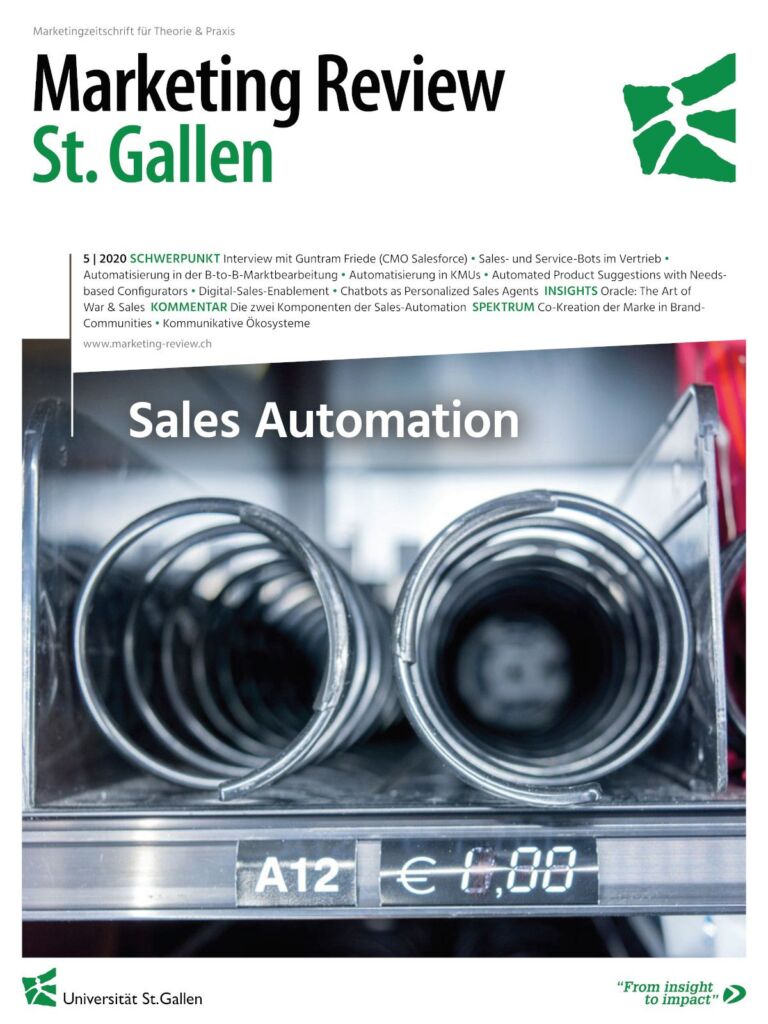Marketing Review St.Gallen 5 | 2020 "Sales Automation"
Have you ever lost a “hot lead” because it was not contacted quickly enough and the competition was faster? Maybe you are in the lucky position to contact a long list of possible leads, but you don’t know how high the probability of a deal or the business potential is to be estimated? Or have you already spent tedious time meticulously entering a long list of customer information into the fields of your CRM system? Which of this information, which you enter there daily, has what explanatory power and relevance for the long-term assessment of customer attractiveness?
Because of exactly these recurring topics in sales, one term is becoming increasingly important: sales automation. Behind the term stands the automation of sales processes through the use of Artificial Intelligence, Machine Learning and Predictive Analytics. The aim is the fast, individualized and resource-saving acquisition and processing of customers. The efficiency of sales processes and the quality of sales decisions should be increased at the same time. However, the automation of sales processes also harbours potential for danger. Customers (still) often have a preference for human consulting instead of exchanging information with a chatbot. Or the customer does not want to become a passed on data product in sales. Where are the limits of new technologies and what does the customer want and accept? How does this change the structures in sales?
Our current issue is intended to give you an initial orientation on how the future of sales is changing rapidly and at the same time give you new food for thought. We hope that this issue will provide valuable impulses for practice and research and wish you an inspiring read!
This text is the editorial of the current issue of Marketing Review St. Gallen with the topic “Sales-Automation”. You can find the magazine in our shop.
